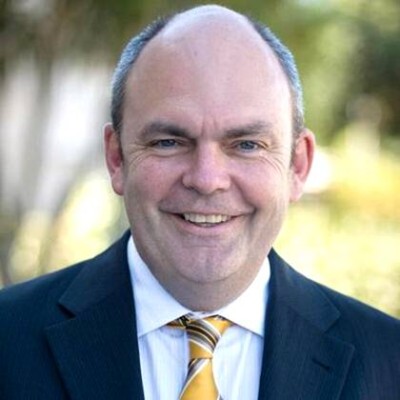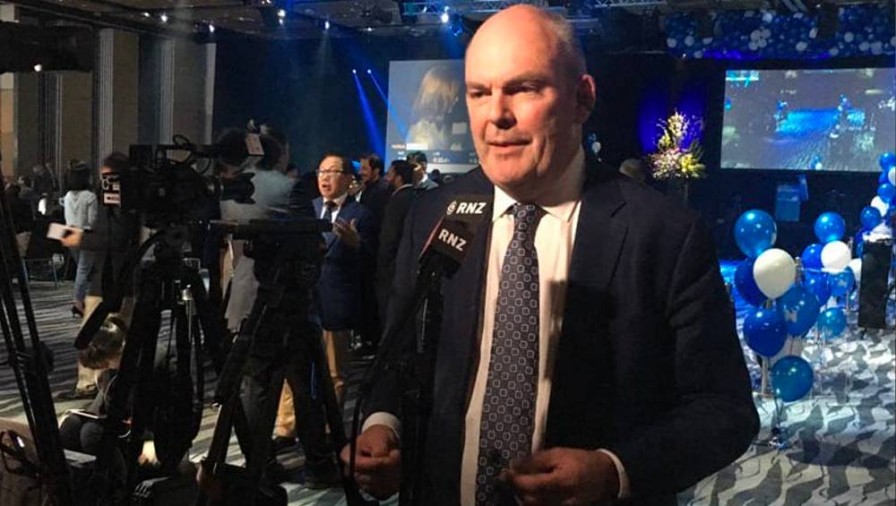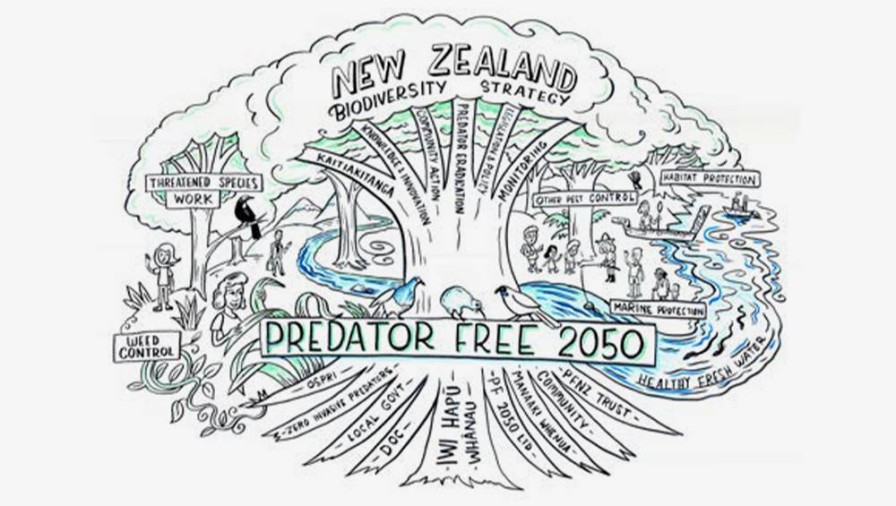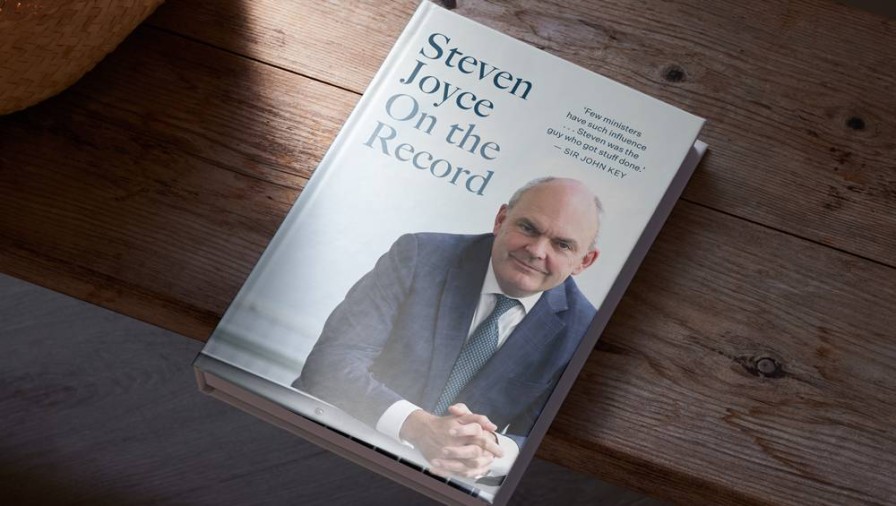National’s Mr Fixit: Politics of the possible
ANALYSIS: Steven Joyce’s guide to how to get things done.
NBR columnist Nevil GIbson speaks with Calida Stuart-Menteath.
ANALYSIS: Steven Joyce’s guide to how to get things done.
NBR columnist Nevil GIbson speaks with Calida Stuart-Menteath.
One of the few benefits of MMP is the ability to parachute talented individuals into the Cabinet without the baggage of electoral commitments and little or no previous parliamentary experience.
Timing is everything if you want to skip a term in Opposition. That proved right for at least two of three parachute people who have recently written books about their experiences in Government.
Margaret Wilson became a List MP in 1999 and was immediately appointed by Helen Clark as minister of labour and attorney-general. At 52, Wilson’s experience included presidency of the Labour Party and foundation professor of law at the University of Waikato.
She later held other cabinet positions and, for one of her three terms, was Speaker until her retirement ahead of the 2008 election. Her book, Activism, Feminism, Politics and Government (2021), is reviewed here. It reveals her frustrations as a minister in pushing an agenda that was more radical than was acceptable to the leadership.
Chris Finlayson, also a lawyer, achieved the same feat for the National Party. Although he spent a term as a List MP, he was attorney-general in John Key’s cabinets from 2008 to 2017. Other posts included minister for arts, culture and heritage. He retired from politics in January 2019. His book, Yes, Minister (2022), is reviewed here. Finlayson’s account is upbeat about his own achievements, with some gossipy asides on those he considered were not up to scratch.

Steven Joyce.
Like Wilson, Steven Joyce, whose book On the Record has just appeared, was immediately appointed to the Cabinet after election as a List MP. His political experience was running National’s campaigns in 2005 and 2008.
It will not surprise many to know the five key issues for National in its unsuccessful 2005 campaign were little different from this year’s: the Treaty of Waitangi, education, welfare, law and order, and the economy. In politics, what goes around, comes around.
In that election, National, led by Don Brash, nearly doubled its vote and gained 22 new MPs. Campaign issues included Brash’s leaked emails and his connections with the Exclusive Brethren. Labour offered interest-free student loans and raised fears that State housing tenants would lose their entitlements.
Joyce drifted into backroom politics after having been forced to “cash up” his interests in private radio, which had occupied most of his life since he left university with a zoology degree, though he skipped getting his graduation certificate.
He had helped create the RadioWorks network, which became majority owned by a Canadian company. To some like myself, who had been involved in private radio, this part of his memoir is a valuable contribution about an industry that was among the most innovative in the world.

Steven Joyce on election night 2008.
The 2008 election proved an easier ride for National, although the world had been engulfed by the global financial crisis. In a Cabinet formed before Parliament had sworn in the new MPs, Joyce was allocated transport and ICT (information and communications technology), two portfolios where getting things done quickly was the main task.
Roading was never a focus in Labour-led governments until 2005, when dedicated funding was based on a mix of taxes and user charges. Joyce dumped the priorities on road safety programmes, public transport, and coastal shipping in favour of building the roading infrastructure and more road maintenance.
“We moved fast, because we had to. If you are going to change infrastructure outcomes within a three-year election cycle, then you only have the first six months in office to make decisions,” he writes.
These observations help explain the failure of the Adern-Hipkins approach and the downgrading of Joyce’s Roads of National Significance, which were revived in the past week or so in the latest 10-year government land transport plan.
Before he was moved on from transport to other portfolios, including tertiary education, economic development, and science and innovation, Joyce abolished the unique right-hand turning rule, banned the use of cellphones while driving, and raised the licence age to 16.

Meantime, he initiated and delivered the ultra-fast broadband network, and “rode unofficial shotgun” to local government minister Rodney Hide on the Auckland’s ‘super city’ amalgamation. In hindsight, Joyce admits the most northern and southern rural counties (Rodney and Franklin) should have been left out.
This may have resolved Auckland’s housing shortage by creating tension between the major urban centre and the two rural counties releasing more land for housing, as happened in Christchurch after the two big earthquakes, as well as around Hamilton and Tauranga.
During his second term, Joyce turned to getting more value for the taxpayer from the state-funded universities, in skills, research, and qualifications, as well as turning the public service into single-minded force to implement what became known as the business growth agenda (BGA).
This meant bringing a plethora of agencies into informal groups that tapped the state’s expertise in six areas to assist international business: capital, exports markets, skilled people, natural resources, innovation, and the necessary infrastructure for those businesses.
Although this cut across traditional ministries and responsibilities, it yielded results from those who took part. Ideas were exchanged among various agencies and ministers so they could be presented to the cabinet with prior buy-in, rather than silo-type plans that needed a full cCabinet discussion before reaching a decision.

Predator Free 2050. Source: Tuiatetaiao.
One outcome from this round-table approach was the 2050 Predator Free programme, which began as a simple funding proposal from the Department of Conservation. Joyce attributes the BGA, which flourished from 2012 to 2017, as a successful way to engage the State in economic development.
Though the BGA had its critics, New Zealand’s unprecedented growth spurt through that period put the country at or near the top of many global significant economic and social rankings.

Rocket Lab’s Peter Beck.
One example was Rocket Lab, Peter Beck’s enterprise that now plays a key role in the world’s largest space exploration programme. While government assistance is never perfect, as the story of Rocket Lab in When the Heavens Went on Sale makes clear, it wouldn’t have taken off without it.
While Joyce naturally emphasises the positive outcomes he achieved, he never seems boastful and, at least to an outsider, makes government seem easy. His insider details on Fonterra’s ‘botulism scare’, the Ministry of Education’s Novopay fiasco, the America’s Cup loss in 2013 (he was the responsible minister), and the Kaikoura earthquake road-and-rail rebuild, are instructive reminders for those with short memories.
Red flags about some events subsequent to the 2017 election are worth noting, though the memoir ends abruptly with Joyce’s decision to leave Parliament, if not his interest in politics. The standout is his account of the rivalry between the Treasury and the Reserve Bank, the latter being considered “divorced from reality and prone to taking an overly analytical approach”.
Joyce writes: ”[The] Reserve Bank’s perceived weakness was also its strength. Its very detachment meant that it could be trusted not to let politics get in the way of decisions it had to make, which can be unpopular.”
He is generous in saying the jury is still out on the role of central banks in the Covid-19 pandemic and moves, not just in New Zealand, to give them broader remits to combat climate change, housing affordability, and local issues such as promoting the Māori economy.
When Joyce was faced with finding a replacement for Graeme Wheeler before the 2017 election, he opted for an interim governor, thus giving the incoming Labour-led Government its first choice, Adrian Orr. Joyce pulls back from drawing obvious conclusions, leaving readers to judge the central bank’s role in allowing rampant inflation and the $11 billion book losses on its bond issuing programme.
Self-justification is an essential ingredient in political memoirs. Joyce’s account is highly readable and does not flog dead horses. If anything, he isn’t judgmental enough, preferring to focus on tasks tackled and done rather than the more philosophical and analytical approach of Wilson and Finlayson to lament items left undone.
For a book launched during an election year, Joyce may have felt the need to wait for Christopher Luxon to present National in a more favourable light since the Key-English era. The book itself looks like a rush job: it has some colour pictures but no index. The text layout and printing by Your Books, a self-publishing company, is below the standard expected of a leading publisher.

On the Record, by Steven Joyce (Allen & Unwin).
Nevil Gibson is a former editor at large for NBR. He has contributed film and book reviews to various publications.
This is supplied content and not paid for by NBR.